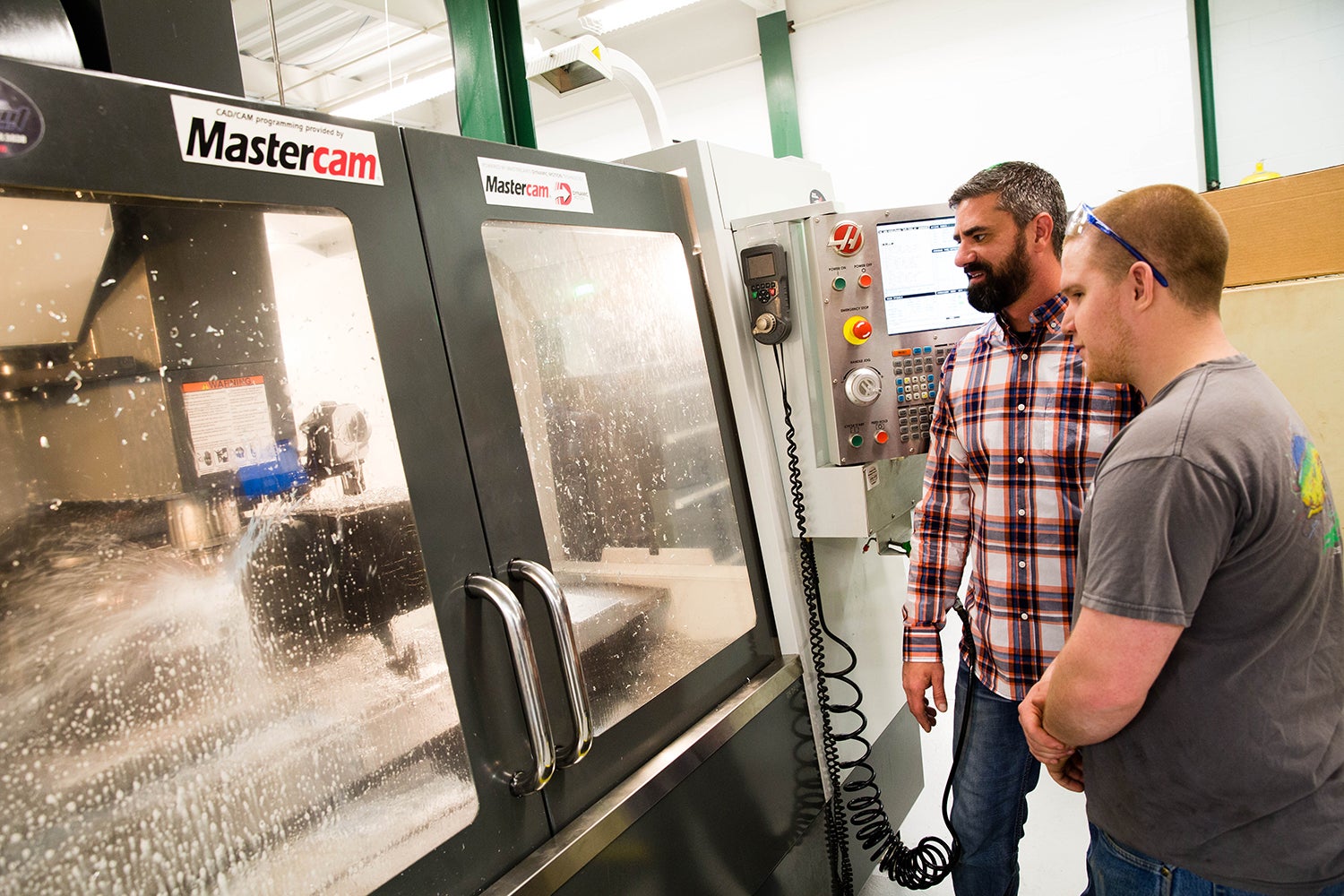Rowan-Cabarrus addressing skilled labor shortage
Published 12:00 am Thursday, June 20, 2019

- Carter Wingfield / Salisbury Post - Jason Hill and a student oversee the machining of an engine cylinder on a Hass-VF4 vertical machining center.
More than 55 years after it opened, Rowan-Cabarrus Community College is playing a crucial role in addressing a statewide skilled-labor shortage.
According to Raleigh-based myFutureNC Commission, a statewide commission focusing on educational attainment, 50% of North Carolina employers are unable to hire needed workers because of lack of employable skills, technical skills and overall education.
Despite the state’s explosive growth in diversity, size and economic activity, its pool of qualified and skilled laborers remains stagnant. The commission reports that, by 2020, 67% of North Carolina jobs will require a postsecondary degree or quality credentials.
Currently, only 49% of North Carolinians between ages 25 and 44 meet these education requirements.
Today, Rowan-Cabarrus Community College is doing its part to address the labor crisis by serving 25,000 students at seven locations throughout Rowan and Cabarrus counties. About 40 programs of study in business, health and public services, and industrial and engineering technologies are offered, as are associate degrees in arts, engineering, fine arts and science.
Jason Hill, instructor of computer integrated machining, brings years of industry experience to the classroom to help prepare students for careers in manufacturing. After serving four years in the Navy as an aviation machinist, Hill worked in the automotive racing industry and honed his skills.
In 2008, he joined Rowan-Cabarrus as a machining instructor. The college received multiple grants to fund machine shop updates. Computer-operated lathes and mills were added.
Hill then took a two-year hiatus from teaching and joined the team at Mastercam CAD/CAM software, working with the local Mastercam reseller, Barefoot CNC of Morganton. He worked in the racing, medical, and defense industries before returning to Rowan-Cabarrus.
“I was in and out of almost every shop in North and South Carolina on a daily basis, just helping people,” he said.
Hill credits his years in the private sector with providing a real-world perspective on preparing students for technical careers.
“It was eye-opening to see what companies need,” he said. “Everybody was looking for well-rounded machinists rather than people that can just run machines. Employees need to know the design side and the engineering side.”
With an eye on design for manufacturing, Hill spearheads a curriculum that encompasses CNC and CAM technology. From the moment they are introduced to the software, students are excited about the capabilities, said Hill. Many learn additional software functions in their free time.
For these eager pupils, putting in effort both in and out of the classroom is paying off.
“In my classes, anybody that wants to work has a full-time job before they graduate,” said Hill. “All of my current students have full-time jobs. I have always pushed CAM and CNC technology. The students who embrace it do great.”
Rowan-Cabarrus students in the computer integrated machining technology are trained in parts production, parts ordering and problem-solving skills through hands-on projects. In the “Intro to CAM” class, for example, students produce their own license plates.
Currently, Hill’s students are producing engine cylinders. The Mastercam designed cylinders are based on a part recovered from the wreck of the USS Monitor, a Civil War-era steamship that sank off the coast of North Carolina.
As he does with all his projects, Hill relies on the expertise of Jimmy Wakeford and his staff at Barefoot CNC for expertise if needed.
“You can buy different software packages, but you won’t get the Mastercam family: there’s always somebody to help you,” said Hill. “Help is only an email or a Facebook post away.
“There are a lot of colleges running free software and I think, ‘Yeah but look at what you’re making. You’re not making any crazy parts.’ They’re making little brackets and other simple parts because they don’t have post-processor capabilities and support. If there’s a problem, Barefoot would be down here tomorrow.”



